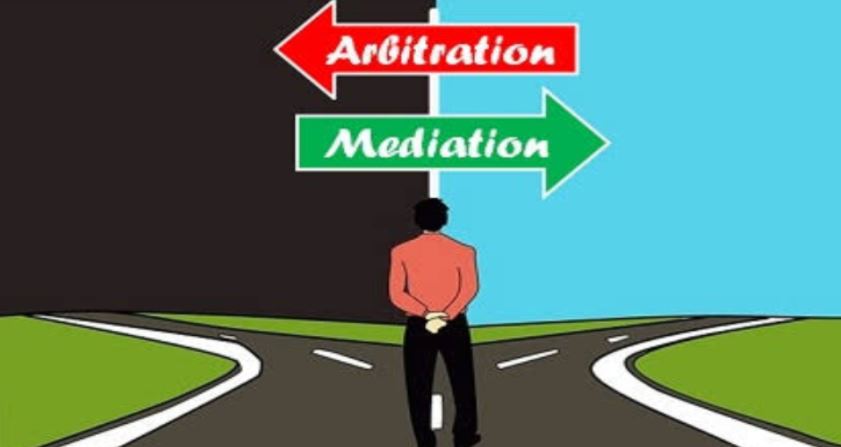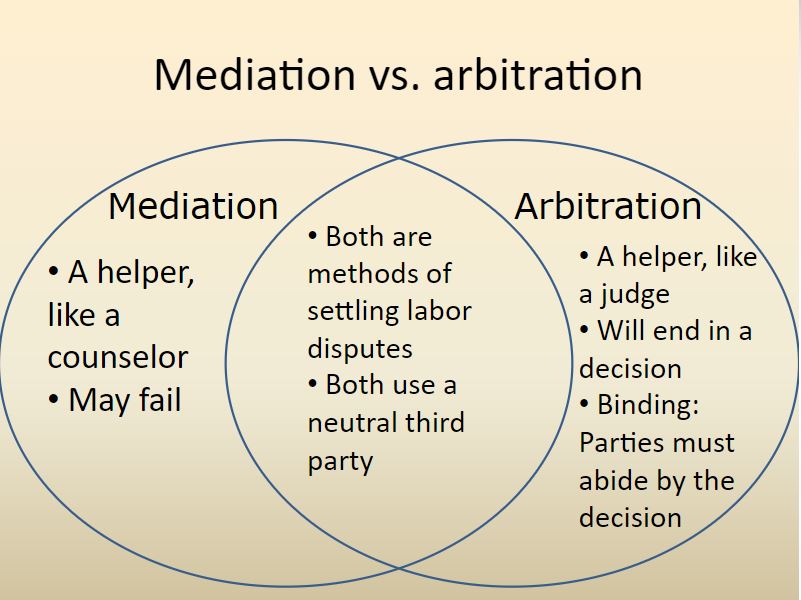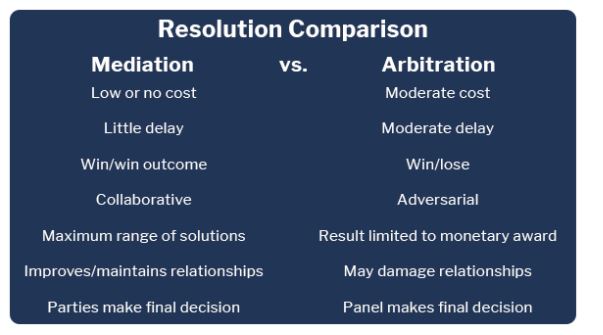
Arbitration:
Arbitration is a private process where disputing parties agree that one or several individuals can make a decision about the dispute after receiving evidence and hearing arguments.
Arbitration is different from mediation because the neutral arbitrator has the authority to make a decision about the dispute.
The arbitration process is similar to a trial in that the parties make opening statements and present evidence to the arbitrator. Compared to traditional trials, arbitration can usually be completed more quickly and is less formal. For example, often the parties do not have to follow state or federal rules of evidence and, in some cases, the arbitrator is not required to apply the governing law.
After the hearing, the arbitrator issues an award. Some awards simply announce the decision (a “bare bones” award), and others give reasons (a “reasoned” award).
The arbitration process may be either binding or non-binding. When arbitration is binding, the decision is final, can be enforced by a court, and can only be appealed on very narrow grounds. When arbitration is non-binding, the arbitrator’s award is advisory and can be final only if accepted by the parties.

Mediation:
Mediation is a private process where a neutral third person called a mediator helps the parties discuss and try to resolve the dispute. The parties have the opportunity to describe the issues, discuss their interests, understandings, and feelings; provide each other with information and explore ideas for the resolution of the dispute. While courts can mandate that certain cases go to mediation, the process remains “voluntary” in that the parties are not required to come to agreement. The mediator does not have the power to make a decision for the parties, but can help the parties find a resolution that is mutually acceptable. The only people who can resolve the dispute in mediation are the parties themselves. There are a number of different ways that a mediation can proceed. Most mediations start with the parties together in a joint session. The mediator will describe how the process works, will explain the mediator’s role and will help establish ground rules and an agenda for the session. Generally, parties then make opening statements. Some mediators conduct the entire process in a joint session. However, other mediators will move to separate sessions, shuttling back and forth between the parties. If the parties reach an agreement, the mediator may help reduce the agreement to a written contract, which may be enforceable in court.
http://bcicac.com/about/what-is-mediationarbitration/difference-between-arbitration-and-mediation/
The main difference between arbitration and mediation is that in arbitration the arbitrator hears evidence and makes a decision. … In mediation, the process is a negotiation with the assistance of a neutral third party. The parties do not reach a resolution unless all sides agree.


